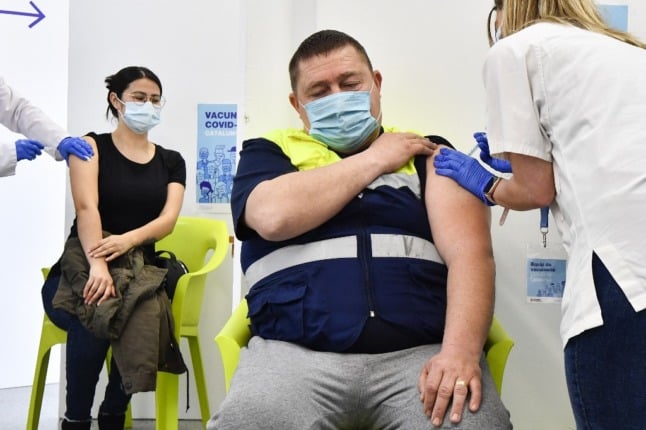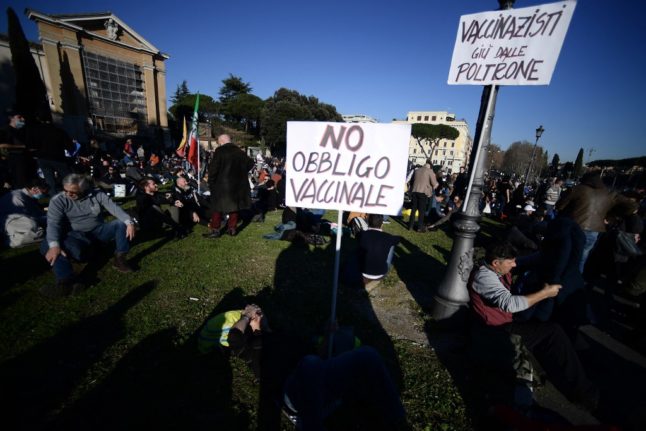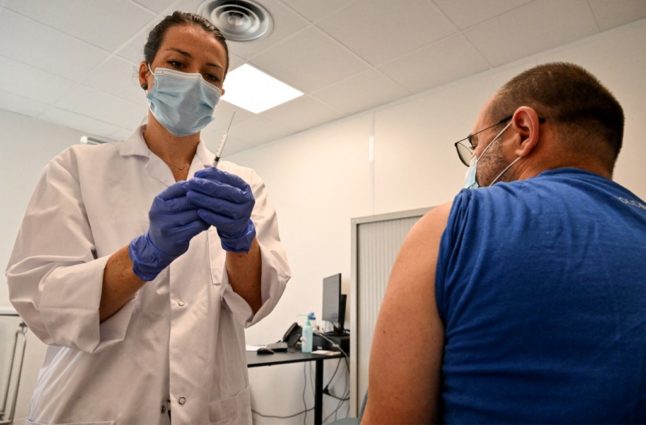When will Spain’s flu jab campaign be launched?
Spain’s Health Minister Carolina Darias announced in late September that people across the country would be soon able to get their flu jab, a nationwide start date which has now been officially confirmed as Monday October 25th.
However, regions such as Galicia, the Basque Country and Andalusia have kicked off their campaigns early as they’ve already seen an increase in flu cases this autumn.
In the Balearic Islands on the other hand, the flu vaccine campaign is likely to start in early November.
Who can get the flu vaccine?
Spanish health authorities recommend the flu vaccine for four main groups:
- people over 65, especially those in care homes
- People under 65 with pre-existing conditions (diabetes, obesity, cancer…), premature babies between the age of 6 months and two years, pregnant women at all stages of pregnancy
- Those who spend time regularly with people in these high-risk groups
- Essential workers such as health personnel, police, firemen
“Now more than ever, it’s important to get the flu vaccine,” Darias said with regards to high risk groups in particular, as the compounded effect of contracting the Covid-19 virus and the flu virus poses a serious threat to them.
Spain’s Health Ministry also warns that the “synergistic effect” of influenza and Covid-19 in the body multiplies the risk of death in case of coinfection by the two viruses.
What about the third Covid-19 dose?
Most regional health authorities will administer a third Covid-19 booster vaccine along with the flu vaccine.
So far those approved for a third jab of the inoculation against the coronavirus are over 70s and immunosuppressed people.
Almost 7 million people in Spain fall into the over 70s category and their booster vaccines will be either Pfizer or Moderna.
The scheduled launch of third vaccines for people aged 70 and over is October 25th, the same date as for the flu vaccine in many parts of the country.
Whether those eligible for the vaccines can get the flu and the Covid-19 vaccine during the same visit to the health centre or vaccination point will depend on availability and resources, as each of Spain’s 17 regions is responsible for organising its own health plan.
What do the experts say?
Experts believe this year’s flu season will have more cases and associated deaths than in 2020-2021 when numbers were particularly low, but no more than other years.
According to Spain’s National Epidemiology Centre, in 2019-2020 the common flu affected a total of 652,400 people in Spain, of which 1,800 ended up in ICU and 3,900 died from the disease. The previous season (2018-2019) the flu caused 6,300 reported deaths in Spain.
“Although the use of face masks has declined outdoors, it’s still mandatory in stores, schools and other indoor spaces, which is an effective way of reducing infections,” Juan Antonio Sanz of the Spanish Association of Preventive Medicine told news agency EFE.
However, as Jose María Molero of the Spanish Society of Family and Community Medicine points out, social mobility has been practically restored and fewer people will have natural immunity to the common flu as there were far fewer cases last year: “That’s going to mean there’s more likelihood of higher virus transmissibility”.
How do I book a flu vaccine?
You’ll have to either ask at your local health centre “¿como puedo pedir cita para la vacuna de la gripe?” (How can I book an appointment for the flu vaccine?) or Google it along with the name of your province or region.
Every regional health authority in Spain has its own system in place, although scheduling a vaccination online is usually possible.
Unlike with the Covid-19 vaccine, private health centres in Spain do have the right to administer flu vaccines to patients, meaning that getting the vacuna antigripal is possible outside of the Spanish public health system.
It’s also possible to buy a flu vaccine dose at pharmacies in Spain and either administer it yourself or ask someone at a private health centre to do it for you at a small cost, but you may be asked for a doctor’s prescription.
The price of the flu vaccine at chemists is usually €10 to €15.




 Please whitelist us to continue reading.
Please whitelist us to continue reading.
😍Chat Español gratis con chicas
👇
https://fb.sv/gratis_chat